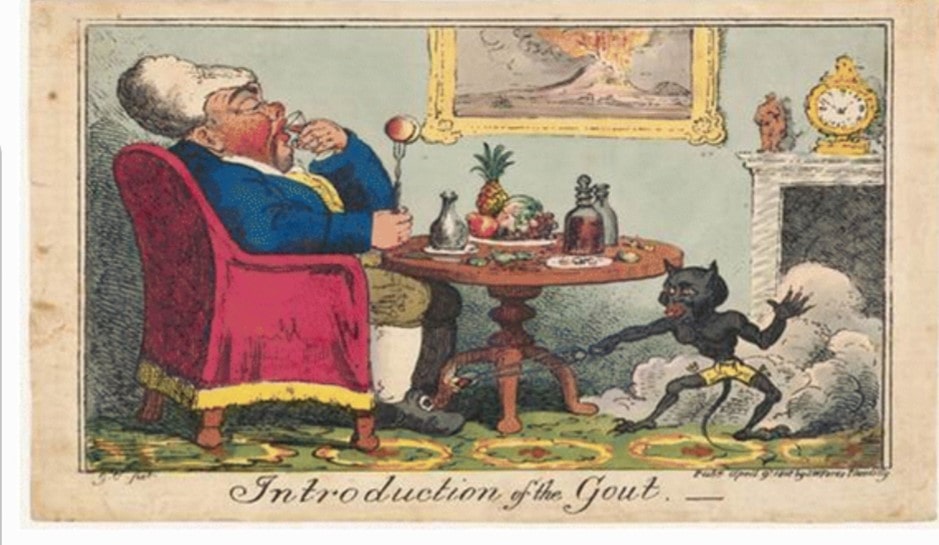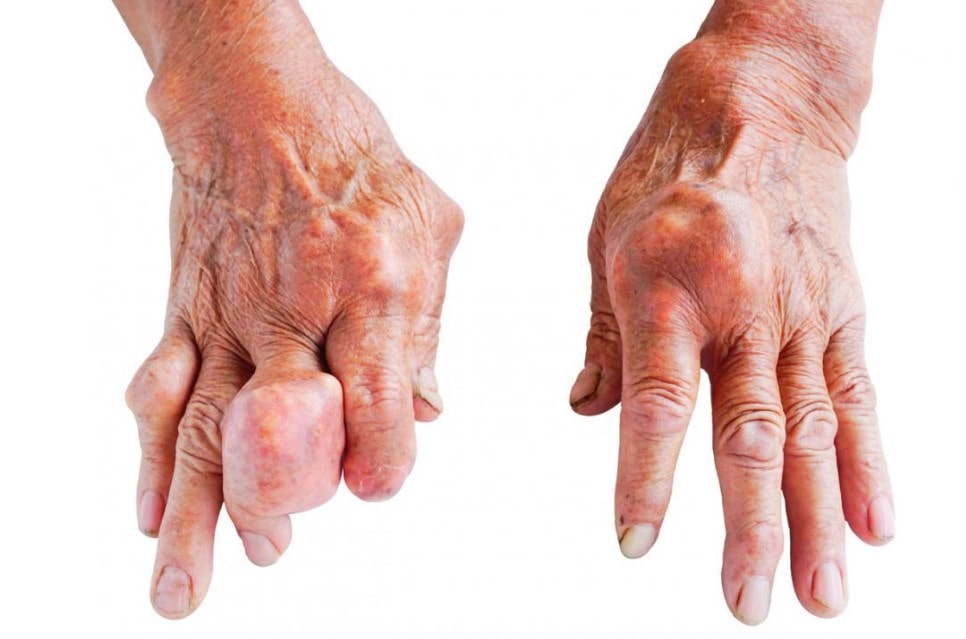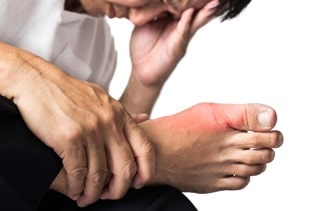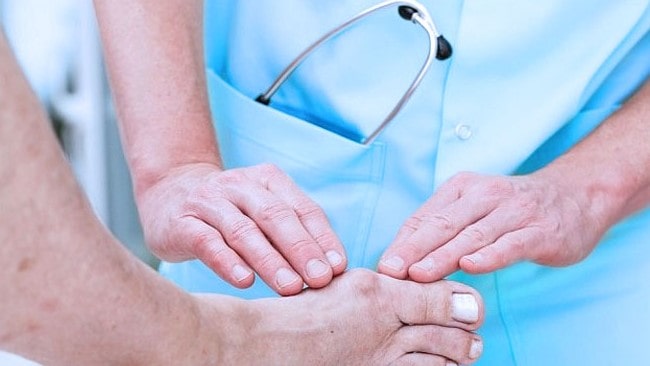Gout

GOUT
What are the symptoms of Gout?
An attack of gout can cause very painful symptoms, including:
- extreme pain that comes on quickly in the affected joint (often the big toe)
- affected joints feeling hot and very tender to the touch
- affected joints looking swollen with the overlaying skin often shiny and red.
Gout can cause long-term severe and irreversible joint damage.
What is Gout?
Gout is a type of inflammatory arthritis that may sometimes be called gouty arthritis. Gout develops in some people who have high levels of uric acid in their body and bloodstream (a condition called hyperuricemia). When uric acid builds up in the joints, it can form needle like crystals. This can cause inflammation and sudden and severe pain, as well as stiffness, tenderness, redness, warmth and swelling. The pain may last hours or weeks and make it difficult to perform daily activities. The build-up of uric acid can look like lumps under the skin, called tophi. It can also collect in the kidneys and cause kidney stones (small, hard deposits).


What are the causes of Gout?
Gout is caused by too much uric acid, or urate, in your body. Urate is produced by the breakdown of chemicals called purines in your body; most of which are made naturally by your body but some come from your diet. People with gout often have kidneys that are unable to flush out extra urate through urine, and when it builds up above a critical level it can form crystals of sodium urate, particularly in your cartilage. Occasionally these crystals escape from the cartilage and trigger sudden painful inflammation of the joint lining.
Whom does it affect?
It mainly affects older males, the ratio of male: female is 4:1.
Which is the most common site for gouty arthritis?
The base of the big toe is the most common site for gout in the beginning.

What are the signs and symptoms of gout?
■ Hot red swollen skin and feeling of pressure around the affected area and accompanied by stretching / tearing pain in the skin.
What are the causes / risk factors of gout?
Genetic factors: one out of 4 people have family history of gout.
Consuming purine rich food such as organ meats (liver, heart, kidney) beans, peas etc. excessive eating, drinking alcohol, medication that decrease body’s ability to remove uric acid like diuretics (water tablets), Vitamin D3, cyclosporine etc. also can precipitate gout. People with diabetes, high cholesterol, obesity are also in the risk group.
What can cause a flare up in gout?
What are the medications for gout?
What are the complications of untreated gout?
What should be done to prevent gout?
How is it diagnosed?
Gout has some of the same symptoms as other forms of arthritis, and signs of a gout attack may mimic a joint infection. Your doctor will use your medical history and family health history, a physical exam, and blood and other diagnostic tests to make an accurate gout diagnosis. Having high uric acid levels alone does not mean that someone will get gout.
Your doctor will measure the level of uric acid in your blood using a blood test. He may also remove fluid from your affected joint and examine it under a microscope for uric acid crystals. Finding uric acid crystals in the joint is the surest way to make a gout diagnosis. Diagnostic ultrasound and dual-energy CT scans are very useful to find uric acid crystals in joints, especially in the timeframe between flares.
What treatments are there?
Treatments for acute attacks of gout
- Non-steroidal anti-inflammatory
- Drugs(NSAIDs)
- Colchicine
- Steroids
- Other treatments for acute attacks

Ongoing treatments to reduce urate
- Allopurinol
- Febuxostat
- Other urate-lowering drugs
